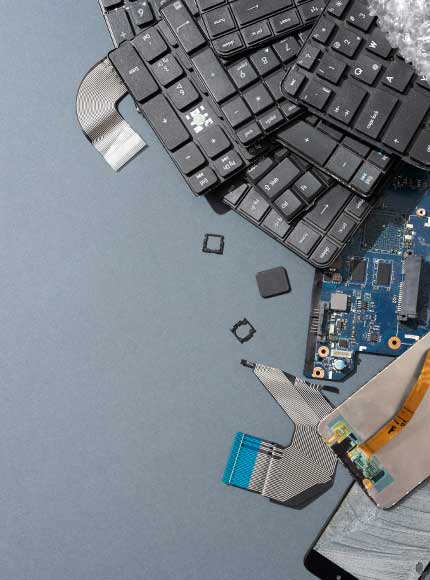Architect
Effective E Waste Management Prevents Pollution and Protects Public Health
E Waste Management is essential for handling discarded electronics in a safe and sustainable way. In today’s digital world, the rapid growth of electronic devices such as computers, smartphones, TVs, and tablets has led to a significant increase in e-waste. This electronic waste often ends up in landfills or is incinerated, leading to the release of toxic substances into the air, soil, and water. Proper E Waste Management ensures that these materials are processed responsibly, minimizing their negative impact on human health and the environment.
Moreover, e waste contains valuable materials such as gold, silver, copper, and rare earth elements that can be recovered and reused through effective recycling methods. Recovering these materials reduces the need for mining and extraction of natural resources, which in turn helps preserve ecosystems and reduces energy consumption. However, the recycling process is complex and requires advanced infrastructure, specialized equipment, and trained professionals. Unfortunately, many developing countries where e-waste is exported lack these facilities, resulting in informal and unsafe recycling practices that expose workers and communities to dangerous toxins.
E Waste Management not only helps recover precious resources but also prevents hazardous substances like lead, mercury, and cadmium from polluting the environment. It supports data security by ensuring proper disposal methods that include secure data wiping and destruction.
Implementing strong E Waste Management practices is vital for promoting a circular economy, where resources are reused and waste is minimized. Governments should enforce stricter regulations and invest in certified recycling centers. Corporations must adopt eco-friendly disposal policies, and consumers should be educated about proper e-waste disposal and the importance of donating or recycling electronics.
By working together globally, we can transform e-waste from a growing threat into an opportunity for innovation, sustainability, and economic growth, ensuring a healthier planet for future generations.
To address these issues, proper e-waste management practices such as proper disposal and recycling must be implemented, and individuals can play a role in reducing e-waste by properly disposing of their old electronics and considering options for repairing and upgrading devices rather than replacing them.
What is the major problem for e-waste?
E Waste Management is a critical issue in today’s digital age, where the rapid growth of electronic devices has led to a massive increase in electronic waste. The major problem with e-waste, or electronic waste, is the environmental impact it has when not disposed of properly. E-waste contains various hazardous materials such as lead, mercury, cadmium, and brominated flame retardants, which can cause harm to both human health and the environment if not handled correctly. When electronic waste is dumped in landfills or burned, these toxic substances can leach into the soil, contaminate water sources, and release harmful fumes into the air, leading to serious health issues such as respiratory problems, neurological damage, and even cancer.
In addition to the health risks, improper e-waste disposal contributes significantly to environmental degradation. Polluted soil and water can affect agriculture, harm wildlife, and disturb the ecological balance. Moreover, e-waste often ends up in developing countries, where it is processed in informal and unsafe conditions, putting local communities at even greater risk.
Proper E Waste Management is essential to combat these issues. By recycling and reusing valuable components like gold, copper, and rare earth metals, we reduce the need for raw material extraction, conserve natural resources, and minimize environmental damage. Governments, corporations, and individuals must work together to raise awareness, implement strict regulations, and promote responsible E Waste Management practices to protect the planet and public health.



